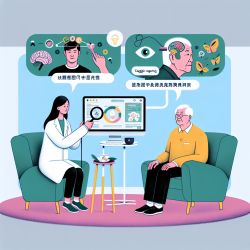The COVID-19 pandemic has highlighted the critical role of community engagement in public health initiatives. The research article "Implementing the COVID-19 Rapid Community Assessment on Vaccine Confidence: Lessons Learned From Alabama and Georgia" provides valuable insights into how practitioners can enhance their skills by understanding and addressing vaccine confidence barriers. This blog post delves into the key findings from this research and offers actionable strategies for practitioners to improve their community engagement efforts.
The Importance of Community Engagement
Community engagement is a cornerstone of effective public health strategies, especially when addressing vaccine hesitancy. The rapid community assessments conducted in Alabama and Georgia revealed that engaging with communities directly can dispel assumptions and provide a clearer understanding of local concerns. Practitioners can leverage these insights to tailor their approaches, ensuring that interventions are culturally sensitive and contextually relevant.
Key Findings from the Research
The research identified several facilitators and barriers to vaccine uptake across different communities:
- Planning and Coordination: Effective planning and coordination were crucial in mobilizing resources and leadership to address vaccination barriers.
- Capacity and Implementation: Challenges such as limited access to vaccination sites, complex scheduling processes, and staff shortages hindered vaccine uptake.
- Attitudes and Beliefs: Mistrust in healthcare systems and government agencies, along with COVID-19 fatigue, were significant barriers to vaccine confidence.
Actionable Strategies for Practitioners
Based on the research findings, practitioners can implement several strategies to enhance their community engagement efforts:
- Enhance Communication: Develop clear, transparent messaging that addresses specific concerns about vaccines. Use trusted community leaders as messengers to build credibility.
- Improve Access: Expand vaccination sites and hours to accommodate diverse populations. Consider mobile clinics and door-to-door vaccination services for hard-to-reach areas.
- Cultural Sensitivity: Tailor interventions to reflect the cultural context of the community. Engage local organizations and leaders in planning and decision-making processes.
- Address Mistrust: Build trust through consistent, honest communication about vaccines' benefits and risks. Acknowledge historical injustices that may contribute to current mistrust.
- Simplify Processes: Streamline scheduling systems and provide assistance for those who may struggle with online registration or lack access to technology.
The Role of Practitioners in Building Vaccine Confidence
The role of practitioners extends beyond administering vaccines; it involves fostering an environment of trust and understanding within communities. By implementing the strategies outlined above, practitioners can play a pivotal role in increasing vaccine confidence and uptake. Moreover, continuous learning through further research and community feedback is essential for adapting strategies to evolving challenges.
Conclusion
The lessons learned from the rapid community assessments in Alabama and Georgia underscore the importance of community engagement in public health initiatives. Practitioners equipped with these insights can enhance their skills and contribute significantly to improving health outcomes within their communities. For those interested in delving deeper into this research, I encourage you to read the original paper by following this link: Implementing the COVID-19 Rapid Community Assessment on Vaccine Confidence: Lessons Learned From Alabama and Georgia.










